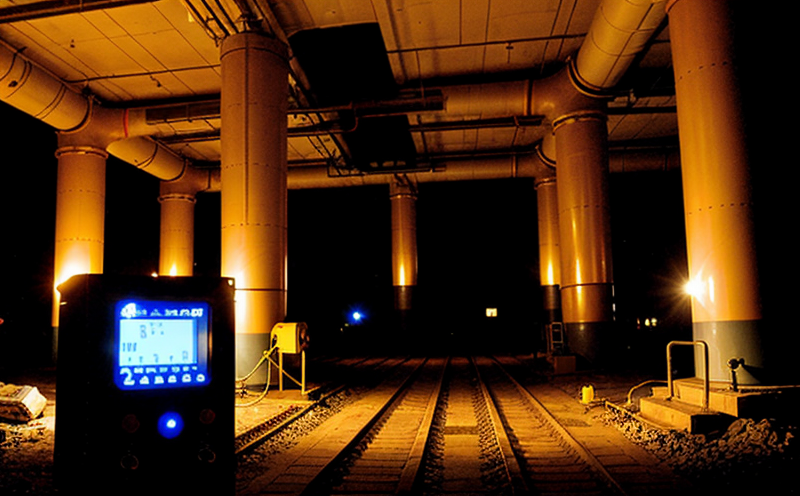ASTM D7282 Radon in Water Sampling and Analysis Testing
The ASTM D7282 standard outlines a comprehensive methodology for the sampling and analysis of radon in water. This service is critical for ensuring compliance with regulatory standards, safeguarding public health, and protecting the environment. Radon, a naturally occurring radioactive gas derived from uranium decay, can pose significant risks if it accumulates to harmful levels in water supplies or air. Compliance testing becomes especially important in areas where underground mining activities release radon into the groundwater.
The ASTM D7282 method is applicable for both potable and non-potable waters used in industrial processes, such as those found in mining operations. This service supports various stakeholders including quality managers, compliance officers, R&D engineers, and procurement teams who need to ensure that water supplies are safe from radon contamination.
The ASTM D7282 protocol specifies the use of a charcoal-based adsorbent tube for collecting samples over a specified time period. The tubes are then desorbed using nitrogen or helium gas, and the radon is measured by alpha spectrometry or liquid scintillation counting. This multi-step process ensures accurate quantification of radon levels.
Compliance with ASTM D7282 is essential for mining companies to meet regulatory requirements in countries like the United States where state and federal agencies mandate testing for radon in water supplies. By adhering to this standard, mining operations can demonstrate their commitment to environmental stewardship and public safety. Furthermore, compliance helps mitigate potential legal risks associated with non-compliance and ensures that water systems are safe for end-users.
Sampling protocols under ASTM D7282 emphasize the importance of proper sample collection techniques to avoid contamination or loss of radon activity during transport to the laboratory. Factors such as temperature, pressure, and time must be controlled meticulously to ensure accurate measurement results. The use of certified reference materials and traceable calibration standards further enhances the reliability of test outcomes.
The ASTM D7282 methodology also addresses potential interferences that could affect radon measurements, including other radioactive gases like krypton-85 or xenon-133. By accounting for these variables through rigorous quality control measures, this testing service provides reliable data necessary for informed decision-making in environmental and occupational health contexts.
Implementing ASTM D7282 ensures that mining companies maintain a robust quality assurance program. This includes regular calibration of equipment, training of personnel, and adherence to strict sampling procedures. Such practices not only enhance the accuracy of radon measurements but also contribute to overall operational efficiency within mining environments.
Quality and Reliability Assurance
- Certified Reference Materials: Utilization of certified reference materials ensures that all samples are analyzed using consistent standards, thereby enhancing the reliability of test results.
- Traceable Calibration Standards: Regular calibration against known values guarantees precision and accuracy in every measurement conducted.
- Instrumentation Validation: Continuous validation of analytical instruments through independent verification checks maintains high levels of operational integrity.
The combination of these quality assurance measures ensures that the ASTM D7282 Radon in Water Sampling and Analysis Testing service provides accurate, reliable, and repeatable results. These qualities are paramount for maintaining trustworthiness among clients and regulatory bodies alike.
Customer Impact and Satisfaction
The implementation of ASTM D7282 Radon in Water Sampling and Analysis Testing has a direct impact on customer satisfaction by providing them with peace of mind regarding the safety of their water supplies. For mining companies, compliance with this standard demonstrates corporate responsibility towards both employees and local communities.
By ensuring that water used in mining operations is free from harmful levels of radon, these organizations contribute to healthier work environments. This can lead to reduced incidents of occupational illnesses linked to long-term exposure to radioactive substances. Additionally, satisfied customers benefit from improved public relations due to demonstrated commitment to environmental sustainability and community health.
For quality managers responsible for overseeing compliance efforts, adherence to ASTM D7282 offers clear guidelines on how best to manage radon risks within their facilities. The availability of detailed test reports allows them to make informed decisions about necessary corrective actions or improvements in operational practices. Compliance officers also find value in having concrete evidence that supports regulatory requirements being met consistently.
In summary, the ASTM D7282 Radon in Water Sampling and Analysis Testing service plays a crucial role in enhancing customer satisfaction by delivering accurate, reliable testing results. It serves as an essential tool for mining companies aiming to uphold high standards of environmental protection and occupational health.
International Acceptance and Recognition
The ASTM D7282 standard has gained widespread acceptance across various countries due to its rigorous approach to radon measurement in water samples. Many nations have incorporated this methodology into their national regulations governing potable and industrial waters.
In the United States, for example, state health departments often reference ASTM D7282 when establishing guidelines for drinking water quality standards that include limits on radon concentrations. Similarly, organizations like the World Health Organization (WHO) recommend using this standard as a best practice for assessing radon levels in different types of water systems.
Across Europe, countries such as Germany and France have adopted ASTM D7282 into their national legislation. These jurisdictions recognize the importance of accurate radon testing to protect public health, particularly given the potential risks associated with occupational exposure during mining activities.
The International Organization for Standardization (ISO) has also acknowledged the value of ASTM D7282 by endorsing it as an appropriate reference document for organizations seeking to establish robust quality assurance programs related to radon detection in water. This international acceptance underscores the global relevance and reliability of this testing service.
Ultimately, adhering to ASTM D7282 ensures that mining operations comply not only with local regulations but also meet internationally recognized standards for environmental protection and occupational health. By doing so, companies can enhance their reputation among stakeholders while ensuring safe working conditions and sustainable practices.





